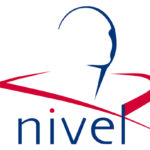11th to 15th April 2016, Utrecht, Netherlands.
Public health and health services research increasingly uses a statistical technique called multilevel modelling or multilevel analysis (MLA). Pioneering development of MLA methodology has been in education where researchers have been interested in studies examining how pupil outcomes (such as examination scores) are related to both the characteristics of the pupils themselves and those of the schools. The use of MLA has since been widespread in the fields of health services research, epidemiology and public health, assisted by the development of specialist multilevel software and the addition of multilevel capabilities to common statistical packages.
The educational example may be transferred to a health services research context in several ways. For example, interest focuses on the roles played by the hospital and patient when studying patient outcomes. Health professionals who are trained at the same university, or who work in the same work setting, might show similar approaches to their patients. Family members influence each other’s health behavior and propensity to seek help for their health problems.
In this course we clarify what MLA is about and why it is important to take both shared contexts and individuals into account when undertaking public health and health services research. It is important for researchers in these fields to have at least a basic understanding of this technique so as to be able to judge research that uses it, and of course also to be able to apply it themselves.
About the Course
The course contains introductory lectures, computer classes, individual consultation and two assignments.
- to gain an understanding of the relevance of multilevel modelling for public health and health
services research
- to gain a basic insight into the theoretical backgrounds of relationships between (macro-level)
contexts and (individual-level) behaviour
- to gain an understanding of the methodological and basic statistical backgrounds of multilevel
modelling
- to learn to work with the multilevel modelling software MLwiN
For more information about the course, click here.
Tip: More up to date educational events can be found online in the Education Database »medicine & health«.

